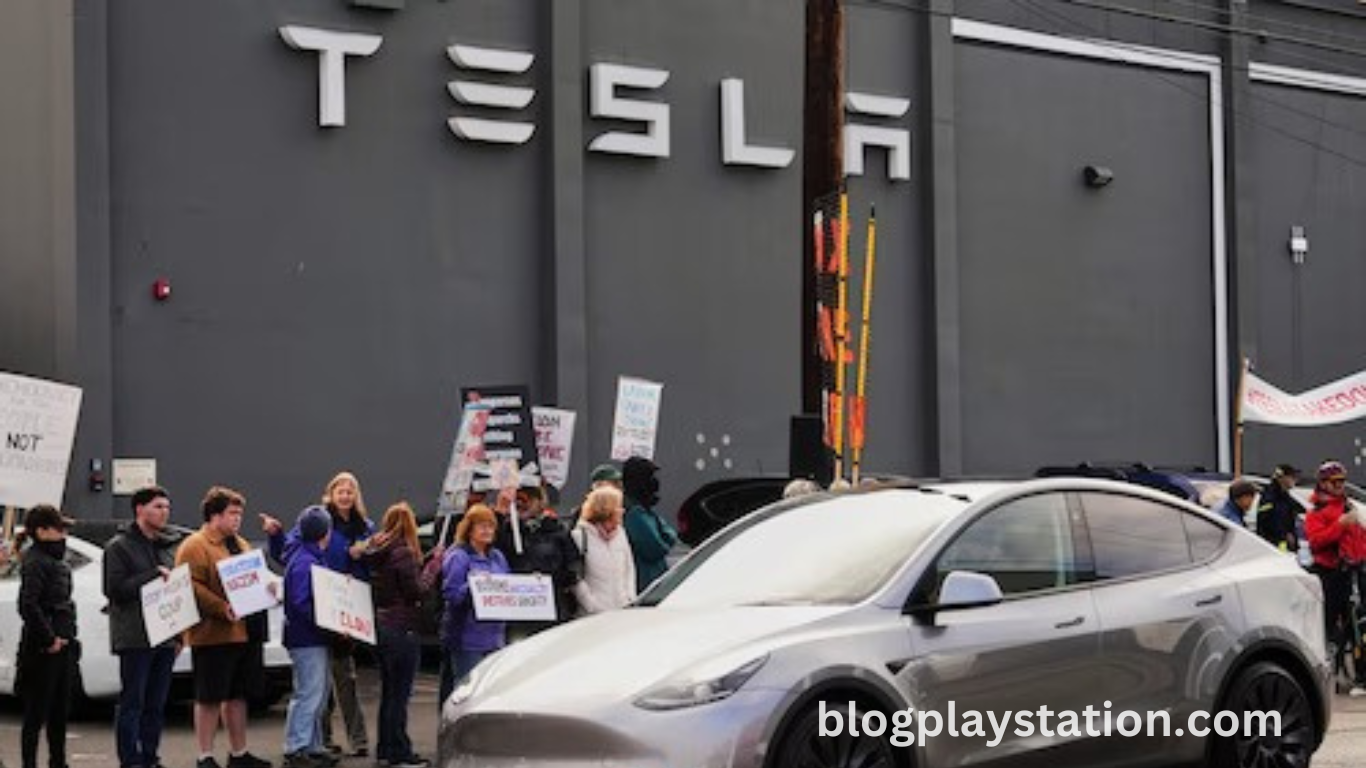Tesla reported a significant drop in vehicle deliveries, marking one of its worst quarterly performances in years. The decline follows mounting criticism directed at CEO Elon Musk, impacting the company’s public image and investor confidence.
Consumer Sentiment Shifts
Musk’s controversial statements and management decisions have sparked backlash, leading to wavering consumer trust. The perception of Tesla as a brand associated with innovation and sustainability has been overshadowed by concerns over leadership and company direction.
Increased Competition in EV Market
Rival automakers continue to expand their electric vehicle offerings, providing consumers with more alternatives. Brands like BYD, Ford, and Hyundai have gained market share, taking advantage of Tesla’s recent struggles and pricing volatility.
Production and Delivery Challenges
Tesla faced disruptions in production and logistics, contributing to delivery slowdowns. Supply chain constraints, factory downtimes, and changing market conditions further complicated the company’s ability to maintain previous growth rates.
Read More : Trump’s global tariffs hurt China with ‘all-round blockade’
Stock Market Reaction
Investors responded negatively to the sales decline, with Tesla’s stock experiencing a sharp dip. Analysts express concerns about long-term growth potential, questioning whether the company can regain its momentum amid leadership controversies and increasing competition.
Future Outlook
Tesla’s ability to recover hinges on strategic shifts in pricing, production efficiency, and restoring consumer confidence. Musk’s role in shaping the company’s reputation remains a critical factor in determining Tesla’s trajectory in the evolving EV landscape.
Frequently Asked Questions
Why did Tesla’s sales decline?
Tesla’s sales dropped due to consumer backlash against Elon Musk, increased competition, and delivery challenges.
How much did Tesla’s sales decline?
The exact percentage varies, but Tesla reported one of its worst quarterly delivery figures in recent years.
Is competition affecting Tesla’s market position?
Yes, competitors like BYD, Ford, and Hyundai are gaining market share, offering more affordable and diverse EV options.
How has Elon Musk’s leadership impacted Tesla’s sales?
Controversial statements and decisions by Musk have influenced public perception, leading some consumers to reconsider Tesla purchases.
Has Tesla’s stock price been affected?
Yes, Tesla’s stock has experienced a decline as investors react to slowing sales and leadership concerns.
What production challenges is Tesla facing?
Tesla has dealt with supply chain constraints, factory shutdowns, and logistics disruptions, contributing to delivery delays.
Can Tesla recover from this decline?
Tesla can regain momentum by improving production efficiency, adjusting pricing strategies, and restoring consumer confidence.
What does this mean for Tesla’s future?
Tesla must navigate leadership challenges, competitive pressures, and market dynamics to maintain its dominance in the EV industry.
Conclusion
Tesla’s recent sales decline highlights the challenges the company faces amid leadership controversies, growing competition, and logistical setbacks. Consumer sentiment has shifted, affecting both demand and investor confidence. While Tesla remains a major player in the EV market, its future depends on strategic adjustments, innovation, and damage control regarding Musk’s public image. With the right approach, Tesla has the potential to recover and sustain long-term growth in the evolving automotive industry.


